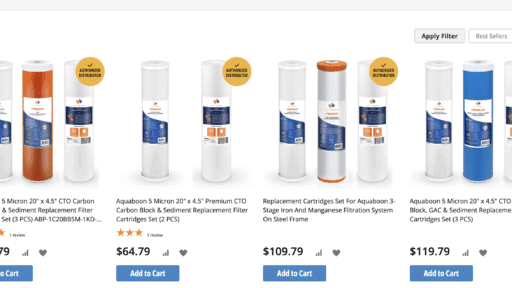Everyone has a favorite outfit that makes them feel good. However, clothes don’t always stay looking new for long. Colors fade, fabrics lose their shape, and small signs of wear would make you wonder, “Didn’t this used to look better?” Well, that happens to everyone.
The truth is, a lot of it comes down to how clothes are cared for day to day. Even high-quality pieces can look worn out quickly if they’re not handled properly. In fact, the average American throws away 81.5 pounds of clothing every year. That number shows just how often wardrobes get replaced instead of preserved. (1)
On the bright side, small changes in how you care for and look after your clothes can make a big difference to their appearance and quality. To make it easier, here are practical clothing care tips that’ll help your wardrobe stay in great condition for the long run.
Read and Follow Clothing Care Labels
For some, care labels are just small, itchy tags inside their clothes. Some would even cut them off to relieve the itchiness. But what some don’t know is that those clothing labels are your best guide to keeping your clothes in good condition.
The symbols and instructions written on those tags are there for a reason, and ignoring them can possibly cause shrinking, fading, or misshaping your clothes’ fabrics.
So, rather than cutting off those labels, make it a habit to check and read them before throwing your clothes into the wash. From the labels, you’ll see that some clothes need to be washed by cold water only, while others require delicate cycles or even hand washing only.
And if you see “dry clean only”, don’t ever risk it in your washer at home. Rather, bring it to the professional dry cleaners and let them do what they do best. Sending certain items to a dry cleaning specialist instead of washing them yourself can help preserve your clothes’ colors and structures. Labels may not look exciting, but they’ll always give you the exact care routine your clothes need.

Sort Laundry Before Washing
Mixing all your clothes together in one load may seem easy, but it’s also one of the fastest ways to wear out your wardrobe. Dark fabrics can bleed into lighter ones, heavy garments can pull on delicate items, and mixed textures rarely wash well together.
Keep your whites, darks, and colors separate as much as possible. Then, take it a step further by dividing heavy fabrics like jeans and towels from lighter items like shirts and blouses. This prevents friction that causes pilling and tearing.
For delicate fabrics such as silk or lace, use mesh laundry bags. They create a protective layer that keeps straps from tangling and prevents snags on zippers or buttons. If unsure, consider professional cleaning services like My Sunny Laundry for the most delicate pieces.
Wash Clothes in Cold Water
Hot water fades colors and breaks down fibers faster. Unless you’re dealing with towels, sheets, or clothing that needs sanitizing, cold water is usually the best option. It’s gentler on fabrics, helps prevent shrinking, and saves energy.
Yet many households don’t take full advantage of this. Surveys show more than half of people (54%) admit they use cold water less than half the time they do laundry. That means a lot of clothes are wearing out faster than they need to, simply because of the water temperature. (2)
Cold water washing is especially important for bright colors, as it keeps them from dulling too quickly. It also reduces the risk of setting stains, which makes it easier to treat them later if needed. Switching your regular washes to cold water is one of the easiest habits you can adopt for longer-lasting clothes.
Use Gentle Detergents Wisely
Laundry detergents are necessary for cleaning your clothes, but not every type is suitable for every fabric. Harsh formulas can strip colors, leave residues, or even weaken fibers. Thus, you need to choose a mild detergent designed for delicate or everyday wear is a smart move.
Another helpful tip is to use less detergent than you think. Adding extra soap doesn’t make clothes cleaner. In fact, it often does the opposite! More than half of people (57%) still believe that “more detergent means cleaner laundry,” but that habit leaves many with new problems.
About 7 in 10 say they’ve noticed white streaks or residue on their clothes after washing, all because too much detergent was used. Sticking to the recommended amount keeps fabrics bright, smooth, and looking like new. (3)
Avoid Overloading the Washer
It’s no surprise that many people consider doing laundry a drag and a time-consuming chore. Thus, as a way to save time, you might attempt to stuff your washer with all your clothes at once.
Unfortunately, doing so will only shorten the lifespan of your clothes. When garments don’t have enough room to move around, they rub against each other and against the drum, which causes fading, pilling, and stretching.
It’s a mistake many people admit to making: about 40% of young adults say they’ve overloaded their machines at some point. While it feels convenient in the moment, it leaves clothes poorly cleaned and worn down faster. (3)
Giving your laundry a little breathing room is the right way to ensure every item gets rinsed properly, prevents extra wrinkles, and makes ironing or steaming much easier later.
Dry Clothes With Care
Dryers are convenient, but they can be tough on clothes. Like hot water, high heat from dryers can weaken fabric, fade colors, and make shrinking almost unavoidable.
Air drying is the safest way to protect your wardrobe. A simple drying rack works for most items, while padded hangers help pieces like dresses or blouses hold their shape while being air-dried.
If you really need to use the dryer, just go for the lowest heat setting. Pull clothes out while they’re still a little damp instead of bone-dry. This trick helps cut down on wrinkles and keeps fabrics from becoming stiff and worn.
For sweaters and knits, always lay them flat on a clean surface. Hanging them while wet only stretches them out and leaves you with sleeves and hems that just don’t sit right.
Store Clothing Properly
The way you put clothes away makes a big difference in how long they last. If your closet is packed so tight you can barely slide in another hanger, your clothes are probably getting wrinkled, stretched, or even damaged without you realizing it!
So, try giving them a little breathing room. Sturdy hangers work best for everyday pieces like shirts, jackets, and dresses. Heavier items like winter coats do better on padded or wooden hangers so the shoulders don’t cave in. And if you have those thin wire hangers? Toss them. They bend too easily and leave awkward marks on your clothes.
For sweaters, just skip the hanger completely. Folding and stacking them keeps their shape, so you don’t end up with saggy sleeves. As for clothes you’re not wearing this season, store them in fabric garment bags or bins. That way, they stay clean and safe from dust or moths until you’re ready to pull them back out.
Care for Shoes and Accessories
A versatile closet or wardrobe also includes shoes, belts, and bags, and they all need a little TLC, too, if you want them to last. Leather pieces especially benefit from a quick wipe with a soft cloth and some conditioning every now and then. If you’ve got dust bags, use them; they’re great for keeping scratches and dirt away when you’re not using your things.
Shoes are a big one. If you wear the same pair every single day, they’ll wear out faster. Rotating between a few pairs gives each one time to air out and keeps them in better shape.
Key Takeaway
Your wardrobe lasts longer when you treat it with care. Simple habits like reading labels, washing gently, and storing pieces properly can genuinely help in keeping your clothes looking their best. Over time, these little steps save money, preserve your favorite outfits, and make getting dressed each day feel a little easier.
References
- “10 Concerning Fast Fashion Waste Statistics”, Source: https://earth.org/statistics-about-fast-fashion-waste/
- “American Cleaning Institute 2024 National Cleaning Survey Results”, Source: https://www.cleaninginstitute.org/newsroom/2024/american-cleaning-institute-2024-national-cleaning-survey-results
- “Worst chore ever? Two-thirds of young adults ‘dread’ doing laundry”, Source: https://studyfinds.org/young-adults-laundry-detergent/








